China’s global proxy game
Afghanistan has become the first significant theatre of effective confrontation between the West and China. But with its deep-rooted economic ties, could the U.S. and NATO actually confront China?
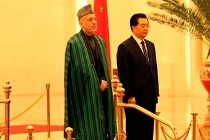 Courtesy: Afghanistan Goverment/WikimediaCommons
Courtesy: Afghanistan Goverment/WikimediaCommons
Afghanistan has become the first significant theatre of effective confrontation between the West and China. But with its deep-rooted economic ties, could the U.S. and NATO actually confront China?
 Courtesy: nazeah/Wikimediacommons - Ramesh Lalwani/Flickr
Courtesy: nazeah/Wikimediacommons - Ramesh Lalwani/Flickr
The year 2011 saw various events - the Arab Spring, anti- corruption protests, Europe's sovereign debt crisis - transform countries and reshape the world order. Gateway House takes a look at what these events mean for India, and presents India's top foreign policy cheers and jeers for the year.
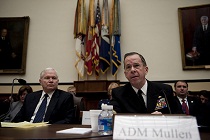 Courtesy: Chairman of the Joint Chiefs of Staff/Flickr
Courtesy: Chairman of the Joint Chiefs of Staff/Flickr
The 'double-dealing' of the U.S. and Pakistani army - all with the ambition of military dominance - has significantly aided various terrorist groups. After 26/11, there is no place to hide for the Mike Mullens and countless others who have been apologists for the Pakistan army and the state it controls.
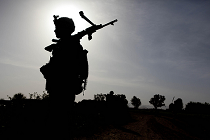 Courtesy: isafmedia/Flickr
Courtesy: isafmedia/Flickr
Last May, U.S. citizen David Headley confessed to being a spy for the Lashkar-e-Taiba. What no one has tackled yet is whether there are other Headleys out there whose actions threaten India, or any other country. Even with thousands of intelligence agencies scouting for terrorist activities, are we really safer?
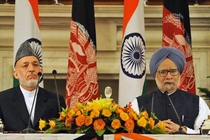 Courtesy: PMO
Courtesy: PMO
NATO’s poor strategy in Afghanistan has failed to quell the Taliban. Now, India will begin to train the Afghani military, and has proven with its light force tactics in Kashmir that it is better suited for the role than NATO forces.
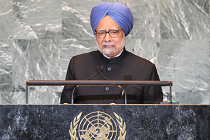 Courtesy: PMO
Courtesy: PMO
Indian Prime Minister Manmohan Singh’s speech at the UN General Assembly has put Indian perceptions on the record and clearly outlined India’s independent foreign policy. India came out unequivocally in support of the Palestinian struggle & reiterated its traditional stance of respecting countries’ sovereignty.
Corruption has become a galling global phenomenon: structured, vertically-integrated networks, whose objective is the extraction of resources, are forming in countries around the globe. And strikingly, these structures are masquerading as democratically-elected, seemingly-open governments.
Although the U.S. has not faced another terrorist attack since 9/11, much has changed in its democratic framework. Gripped by fear, 3,984 federal, state and local organizations work on domestic counter-terrorism, spending an estimated $1 trillion.
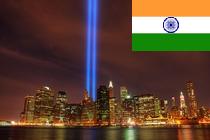 Courtesy: WTCTributeinLight/WikimediaCommons
Courtesy: WTCTributeinLight/WikimediaCommons
A change has come about after 9/11: the ideologies grouped as “Al Qaeda” has morphed, from a group directed by a few individuals, it is now disaggregated. Due to this change, NATO is empowering it's future foes in the Arab world by its continued belief in the camouflaged jihadis.
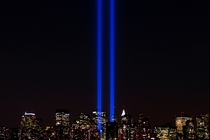 Courtesy: Scott Hudson/Flickr
Courtesy: Scott Hudson/Flickr
India's security concerns seem to grow weaker by the year. The dangerous political polarity, a paralysed ruling coalition, a fractured opposition, a popular distaste for a corrupt polity and complicit bureaucracy, and a slowing economy, has handicapped any progress towards this issue.